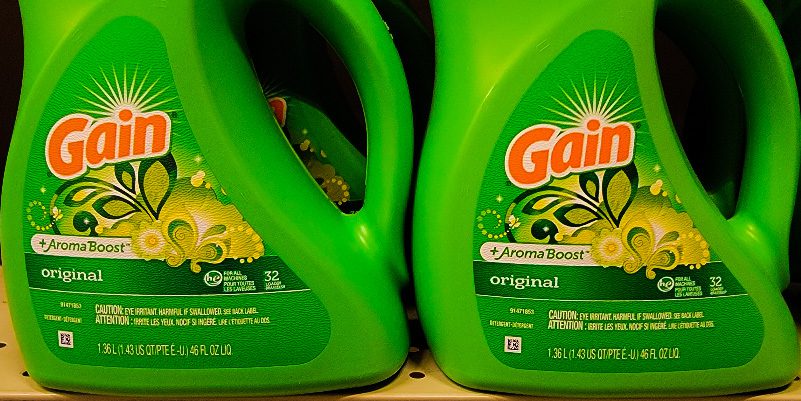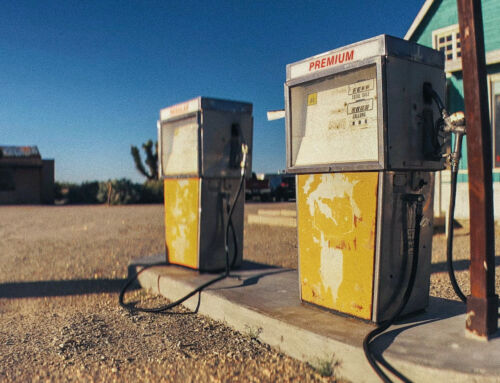View by Topic
Recent Articles
-
Congress Blocks California’s Gasoline Car BanSaturday, May 31st, 2025
-
EPA Will Keep Current Limits for “Forever Chemicals” in Drinking WaterSaturday, May 24th, 2025
-
Court Indefinitely Pauses SEC Climate Rule LitigationSaturday, May 17th, 2025
-
Maryland is About to Regulate Mold But is the Cart Before the HorseSaturday, May 10th, 2025
View by Month/Year
“Green Building Law Update” Headlines
Recent Articles & News from
Stuart Kaplow’s blog
at GreenBuildingLawUpdate.com
- EPA Will Keep Current Limits for “Forever Chemicals” in Drinking Water May 25, 2025
- Court Indefinitely Pauses SEC Climate Rule Litigation May 18, 2025
- Maryland is About to Regulate Mold: But is the Cart Before the Horse? May 11, 2025
- BEPS Redux: The Most Far Reaching Environmental Legislation of the 2025 Maryland General Assembly May 4, 2025
Subscribe to the Green Building Law Update!
Stuart Kaplow brings his expertise and extensive experience to the table with his unique digital publication, "Green Building Law Update". Subscribers receive regular updates to keep them informed about important issues surrounding Environmental Law, Green Building & Real Estate Law, as well as the emerging demand for Environmental Social Governance (ESG).
Get fresh content through the lense of Stuart Kaplow's cutting-edge expertise, innovative commentary and insider perspective. Don't miss another issue! Subscribe below.

Executional Greenwashing is a Thing
Greenwashing is a term used to describe the marketing tactic of making false or misleading claims about a product or service’s environmental benefits. “Executional greenwashing” is a neologism characterizing the way in which a business promotes or executes an environmental initiative, rather than the actual environmental impact of the initiative.
That is, a company might promote a recycling program as a positive environmental initiative, but if that recycling program is poorly designed or not effectively implemented, it may not actually have a significant impact on reducing waste or otherwise protecting the environment. In that instance, the company would be guilty of executional greenwashing.
Executional greenwashing can also occur when a company promotes an environmental initiative that is only a small part of its overall business practices while ignoring its other practices that have a larger negative environmental impact. For example, a business might promote the use of sustainable packaging for one product, while ignoring the fact that their overall production process is energy intensive and hugely greenhouse gas emitting.
But the largest number of executional greenwashing claims have arisen where that new term has also been coined to describe when a business uses “nature evoking” imagery in communication campaigns instead of making verbal claims about the sustainability of their product or services to artificially enhance a brand’s ecological image. It is used to subconsciously communicate messages about greenery to the consumer, influencing their decision making. Consider the large number of businesses that have a wind turbine in their advertising.
It is suggested that executional greenwashing can be particularly deceptive, as it can create the illusion that a company is committed to sustainability, environmental stewardship, and broader ESG factors while masking the reality of its business practices. There are instances that it could be unintentional. Consumers and other businesses trying to make environmentally conscious choices may be misled by these claims and may inadvertently support companies that are not committed to sustainability.
And this is playing out real time in a class action case brought in Federal Court in the Western District of New York by Darlene Hangen-Hall against The Proctor & Gamble Company, case 1:23-cv-00218-GWC, filed March 13, 2023, “the world’s largest producer of laundry detergents under a variety of brands” as the manufacturer and seller of Gain laundry detergent. The complaint alleges “’executional greenwashing’ as the ‘next stage’ of telling customers that what they are buying is consistent with supporting the environment.”
The complaint claims, “the product was manufactured, identified, marketed, and sold by Defendant and expressly and impliedly warranted to Plaintiff and class members that its use was beneficial for the environment, based on its successful ‘executional greenwashing,’ with its natural elements such as stylized flowers, leaves, butterflies and intensive use of the color green [on the label on the container], even though it contained high levels of dioxane, a toxic chemical incompatible with those same natural elements, because of its detrimental effects on the health of humans and the environment.”
Of import despite being the claim de rigueur, greenwashing is not a cause of action and this case avers violation of state consumer protection laws, breach of express warranty, breach of the implied warranty of merchantability, negligent misrepresentation, and fraud. There is also an allegation that this consumer product exceeds a regulatory level of dioxane, which is problematic for the manufacturer, however, lab results from “an independent” lab may well mean little if anything.
In counseling businesses in this era of exponential growth in green claims, we must stress public policy regulation of this phenomenon has been lax, hence there is little good regulatory guidance out there, including the failure of the FTC to issue a timely updated version of the now more than decade old Green Guides for the Use of Environmental Claims (.. now expected in late 2023), does not help businesses avoid making environmental marketing claims that expose them to risk both in the courts from environmental groups and to reputation in the marketplace.
Properly drafted environmental marketing claims can withstand a challenge as was made evident last year when the DC Superior Court granted Coca Cola Company’s motion to dismiss in an executional greenwashing case brought by the Earth Island Institute that alleged the company, “portrays itself as ‘sustainable’ and committed to reducing plastic pollution while polluting more than any other beverage company ..” The Court found that Coca-Cola’s statements were aspirational in nature and, therefore, not a violation of the DC consumer protection laws.
The rapid and explosive growth in greenwashing claims against businesses across a range of industries tracks the public becoming more environmentally conscious, and increasingly likely to scrutinize the environmental impact of the products they purchase. We recently posted a blog, New Greenwashing Case is Troubling to Future of ESG focusing on a claim in the airline industry. Companies that make false or misleading environmental claims risk not only legal action but often more significantly, damage to their reputation and loss of consumer trust.
In response, increasing numbers of businesses note that they can avoid charges of greenwashing and resultant litigation simply by green hushing, saying little or nothing. Green hushing has been identified as one of the big environmental trends of 2023 and does at times have a very valid place in communication campaigns. As you consider saying little or nothing about your business, read our recent blog post, Green Hushing versus Confidentiality.
We work with businesses, assisting their creative freedom to differentiate products and services through their communication campaigns striking the correct balance in the need to properly inform consumers while being cognizant that the company can and should thrive as an active actor in a more sustainable world.
Drafted in part with Chat GPT









